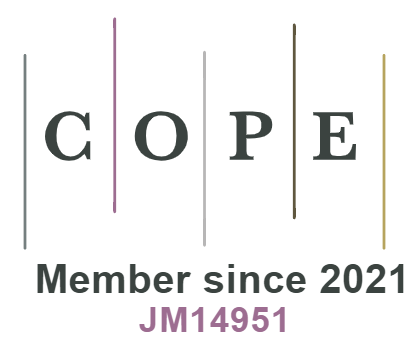About Mistakes Made by 4-Year-Old Children when Assessing their Lexical Resources
DOI:
https://doi.org/10.18778/2544-7238.05.12Keywords:
vocabulary, understanding, speech therapy, preschool childrenAbstract
The aim of this article is to present the results and to analyze the research on the vocabulary of 4-year-old children, without neurological disorders and within intellectual norm. As for the study, 4-year-old children were selected, because at this age a child already has some knowledge about himself, the family, preschool, and general environment. Then he makes new acquaintances influencing the development of passive and active speech. This is the age when a particular increase in vocabulary can be observed. The aim of this research is to show the types of errors (thematic, phonetic, semantic) and to identify the parts of speech with which these children have the most or the least difficulties understanding.
Downloads
References
Aitchison J., 2003, Words in the Mind: An Introduction to the Mental Lexicon, Oxford: Blackwell.
Google Scholar
Borowiec H., 2014, Dziecięce rozumienie świata (studium lingwistyczne), Lublin: Wydawnictwo Uniwersytetu Marii Curie-Skłodowskiej.
Google Scholar
Clark E. V., 1995, Language acquisition: The lexicon and syntax, [w:] J. L. Miller, P.D. Eimas (red.), Handbook of perception and cognition, vol. 11: Speech, language, and communication, San Diego: Academic Press, s. 303–337.
Google Scholar
DOI: https://doi.org/10.1016/B978-012497770-9/50011-X
Dobrzyńska B., 2007, Rozumienie pojęć u dzieci w wieku przedszkolnym, „Pedagogia Christiana”, nr 1, s. 83–95.
Google Scholar
DOI: https://doi.org/10.12775/PCh.2007.005
Gentner D., Boroditsky L., 2001, Individuation, Relativity and Early Word Learning, [w:] M. Bowerman, S. Levinson (red.), Language Acquisition and Conceptual Development, Cambridge: Cambridge University Press, s. 215–256.
Google Scholar
DOI: https://doi.org/10.1017/CBO9780511620669.010
Gunia G., 1986, Słownictwo czynne i bierne dzieci głuchych kończących szkołę podstawową, „Rocznik Naukowo-Dydaktyczny”, z. 100, „Prace Pedagogiczne”, t. VI, s. 87–104.
Google Scholar
Haman E., Fronczyk K., 2016, Obrazkowy Test Słownikowy – Rozumienie. Podręcznik, Gdańsk: Pracownia Testów Psychologicznych i Pedagogicznych.
Google Scholar
Haman E., Fronczyk K., Girtler I., 2009, Co rodzice wiedzą o zasobie słownictwa swoich dzieci? Kwestionariuszowe badanie rozwoju słownika dzieci 2–6-letnich, „Psychologia Rozwojowa”, t. 15, nr 2, s. 57–71.
Google Scholar
Haman E., Fronczyk K., Łuniewska M., 2016, Obrazkowy Test Słownikowy – Rozumienie, Gdańsk: Pracownia Testów Psychologicznych i Pedagogicznych.
Google Scholar
Haman E., Fronczyk K., Miękisz A., 2010, Ocena zasobu słownictwa u dzieci w wieku przedszkolnym – nowe narzędzie testowe, „Psychologia Rozwojowa”, t. 15, nr 1, s. 21–45.
Google Scholar
Jakubowicz-Bryx A., 2004, Zasób słownictwa uczniów klas niższych i jego konsekwencje dydaktyczne, [w:] J. Kida (red.), Język, kultura, nauczanie i wychowanie, Rzeszów: Wydawnictwo Uniwersytetu Rzeszowskiego, s. 129–134.
Google Scholar
Kurcz I., 2000, Psychologia języka i komunikacji, Warszawa: Wydawnictwo Naukowe Scholar.
Google Scholar
Lamęcka-Adamek J., 2001, Rozumienie pojęć przez dzieci sześcioletnie a ich poziom inteligencji, „Nauczyciel i Szkoła”, nr 3–4, s. 122–132.
Google Scholar
Laufer B., Elder C., Hill K., Congdon P., 2004, Size and strength: do we need both to measure vocabulary knowledge?, „Language Testing”, no. 21, s. 202–226.
Google Scholar
DOI: https://doi.org/10.1191/0265532204lt277oa
Maciejewska A., 2012, Formowanie znaczeń w wypowiedziach dzieci przedszkolnych, „Studia Pragmalingwistyczne”, nr 3, s. 55–70.
Google Scholar
Smoczyńska M. (red.), 1980, Badania nad rozwojem języka dziecka, Warszawa: Państwowe Wydawnictwo Naukowe.
Google Scholar
Smółka L., 2004, Kompetencja komunikacyjna dzieci sześcio-, siedmioletnich, Kraków: Wydawnictwo Naukowe Akademii Pedagogicznej.
Google Scholar
Wells G., 1984, The child’s theory of mind, Cambridge: MIT Press.
Google Scholar
Wiśniewska-Kin M., 2007, „Chcieć, pragnąc, myśleć, wiedzieć” – rozumienie pojęć przez dzieci, Kraków: Oficyna Wydawnicza „Impuls”.
Google Scholar
Zarębina M., 1985, Próba statystycznej analizy słownictwa polszczyzny mówionej: synteza danych liczbowych, Wrocław: Ossolineum.
Google Scholar
Downloads
Published
How to Cite
Issue
Section
License

This work is licensed under a Creative Commons Attribution-NonCommercial-NoDerivatives 4.0 International License.












